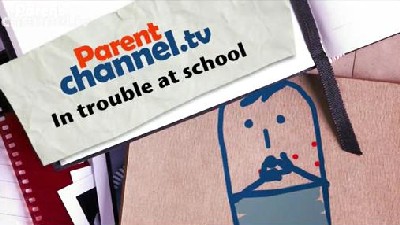 Go to main content
Go to main content
Archive Website of the UK government
Please note that this website has a UK government accesskeys system.
Main menu
Page menu
Parents

School discipline and exclusions
Your child's school should have a written policy setting out the standards of behaviour it expects. The policy should outline what the school will do if your child’s behaviour falls below these standards.
Can't see the video?

To play this video you need Adobe Flash Player version 9 or higher on your computer and have JavaScript enabled on your browser. Our Help with video files page gives advice if you are unsure how to do this. The Flash software is free.
Promoting good behaviour
All pupils in a school benefit when behaviour is good. High standards of behaviour are important in helping children to feel safe and learn well, and parents and carers play a key part in this.
The government advises schools to focus on promoting positive behaviour, helping to build self-discipline and encouraging respect for others. But schools also need sanctions to deter pupils from misbehaving.
Behaviour policies
Schools should review their behaviour policies regularly and publicise them to parents, staff and pupils.
Behaviour policies should include a code of conduct for pupils. Rules on conduct can apply before and after school as well as during the school day. They can set expectations for how pupils will behave in corridors, in bus queues and at lunch and break times as well as in the classroom.
Sanctions
Schools have a legal right to impose reasonable sanctions if a pupil misbehaves. Sanctions a school might use include:
- a reprimand
- a letter to parents or carers
- removal from a class or group
- loss of privileges
- confiscating something belonging to your child if it’s inappropriate for school (for example, a mobile phone or music player)
- detention
Discipline and physical contact
Teachers can’t punish pupils physically, but can physically restrain them where it’s necessary to stop a pupil injuring him or herself or someone else, damaging property or causing serious disruption.
Certain staff can search a pupil suspected of carrying a weapon, illegal drugs, alcohol or stolen items with or without their consent.
Your child and detention
Detentions can take place during school hours, at lunchtime, after school or at weekends. If your child fails to attend without a reasonable excuse, the school may give them a more severe punishment.
The school's behaviour policy should set out the school's approach to issuing detentions.
Fixed period exclusions
A child who gets into serious trouble at school can be excluded for a fixed period of time.
Some points to bear in mind are that:
- only the headteacher or acting headteacher can exclude a child
- your child can't be given fixed period (non-permanent) exclusions which total more than 45 school days in any one school year
Following an exclusion the school must tell you :
- the period and reason for exclusion
- how you can ask for the exclusion to be consideredby the governing body
- your duty during the first five days of an exclusion to keep your child away from public places during normal school hours, unless there is a good reason
- the arrangements they have made if your child has been excluded for more than five days
Permanent exclusions
A school will usually only permanently exclude a child as a last resort, after trying to improve the child's behaviour through other means. However, there are exceptional circumstances in which a headteacher may decide to permanently exclude a pupil for a 'one-off' offence.
Some points to bear in mind if your child has been permanently excluded:
- the school's governing body must review the headteacher's decision and you may meet with them to explain your views on the exclusion
- if the governing body confirms the exclusion, you can appeal to an independent appeal panel organised by the local authority or academy trust (if the school is an academy)
- the governing body must write to you with the reasons for their decision, how to request an appealand the date by which your request should be received
- the local authority must provide full-time education for your child from the sixth day of a permanent exclusion
More useful links
In this section...
- Pupil health and safety
- Making a complaint to your child's school
- Protecting your child from abuse: your school's role
- School attendance, absence and your child
- School attendance and absence: the law
- Access to education for children and young people with medical needs
- Dealing with bullying
- Security searches at school
 Facebook
Facebook Twitter
Twitter StumbleUpon
StumbleUpon Delicious
Delicious Reddit
Reddit